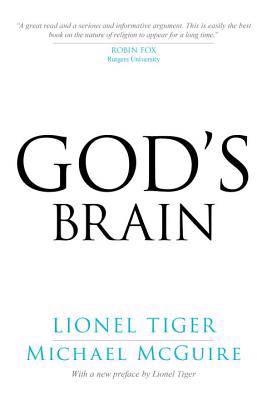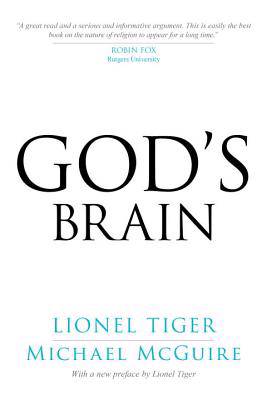
- Retrait gratuit dans votre magasin Club
- 7.000.000 titres dans notre catalogue
- Payer en toute sécurité
- Toujours un magasin près de chez vous
- Retrait gratuit dans votre magasin Club
- 7.000.0000 titres dans notre catalogue
- Payer en toute sécurité
- Toujours un magasin près de chez vous
Description
Taking a perspective rooted in evolutionary biology with a focus on brain science, two distinguished authors radically alter the fractious debate on the existence of God and the nature of religion.Two distinguished authors, renowned anthropologist Lionel Tiger and pioneering neuroscientist Michael McGuire, elucidate the perennial questions about religion: What is its purpose? How did it arise? What is its source? Why does every known culture have some form of it?Their answer is deceptively simple, yet at the same time highly complex: The brain creates religion and its varied concepts of God, and then in turn feeds on its creation to satisfy innate neurological and associated social needs.Brain science reveals that humans and other primates alike are afflicted by unavoidable sources of stress that the authors describe as "brainpain." To cope with this affliction people seek to "brainsoothe." We humans use religion and its social structures to induce brainsoothing as a relief for innate anxiety. How we do this is the subject of this groundbreaking book.In a concise, lively, accessible, and witty style, the authors combine zoom-lens vignettes of religious practices with discussions of the latest research on religion's neurological effects on the brain. Among other topics, they consider religion's role in providing positive socialization, its seeming obsession with regulating sex, the common biological scaffolding between nonhuman primates and humans and how this affects religion, and evidence that the palliative effects of religion on brain chemistry are not matched by nonreligious remedies.In a new preface to the paperback edition, Lionel Tiger discusses the paradoxical effects of religion-on the one hand, producing masterpieces of art and architecture and, on the other, fueling violence throughout history and into the present. This fascinating book provides key insights into the complexities of our brain and the role of religion, perhaps its most remarkable creation.
Spécifications
Parties prenantes
- Auteur(s) :
- Editeur:
Contenu
- Nombre de pages :
- 256
- Langue:
- Anglais
Caractéristiques
- EAN:
- 9781633883376
- Date de parution :
- 12-12-17
- Format:
- Livre broché
- Format numérique:
- Trade paperback (VS)
- Dimensions :
- 155 mm x 229 mm
- Poids :
- 317 g

Les avis
Nous publions uniquement les avis qui respectent les conditions requises. Consultez nos conditions pour les avis.






